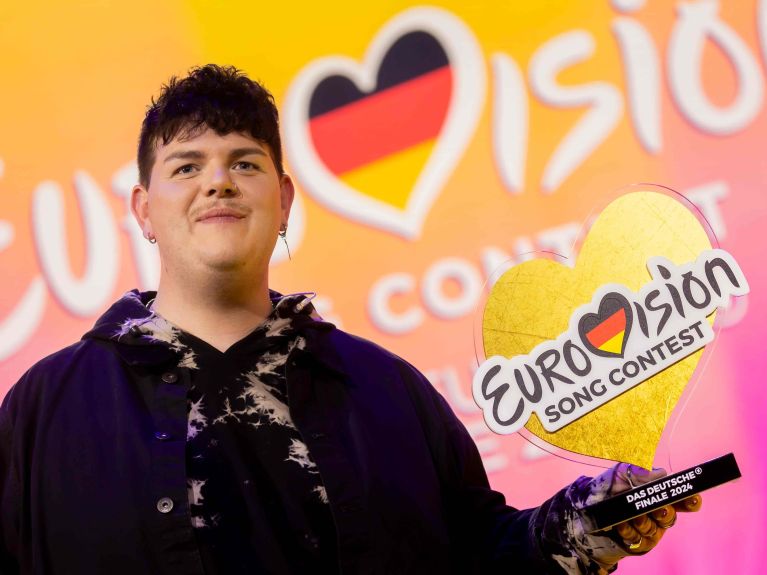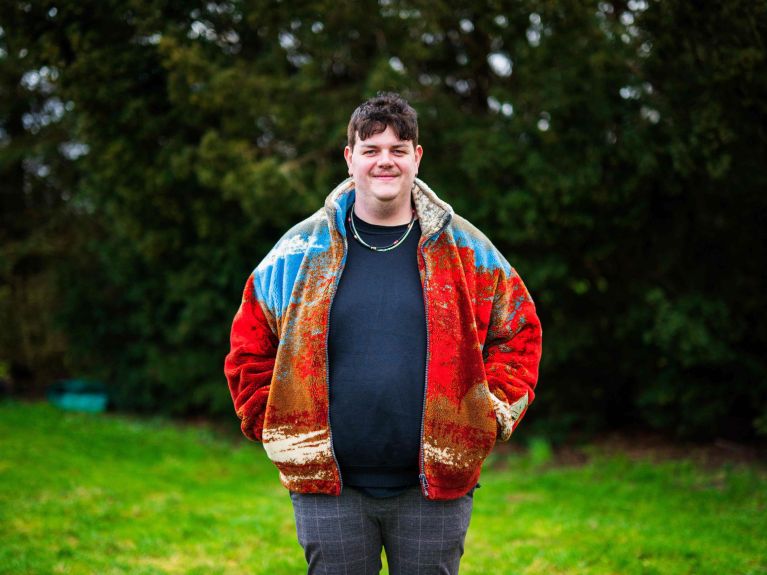From the street to the Eurovision stage: Isaak sings Germany’s 2024 Eurovision entry
The former street performer Isaak is representing Germany at Eurovision 2024 in Malmö. Here’s everything you need to know about the Eurovision Song Contest.

Every year the Eurovision Song Contest inspires millions of people around the world. We’ve got the answers to your biggest questions about Eurovision 2024.
Where is the 2024 Eurovision Song Contest taking place?
The 68th Eurovision Song Contest is taking place in the Swedish city of Malmö. The motto of Eurovision 2024 is “United By Music”.
When is the 2024 Eurovision Song Contest happening?
The semi-finals are taking place on 7 and 9 May and the finals will be held on 11 May.
Attracting up to 200 million viewers, the Eurovision Song Contest is the world’s largest music competition. Thirty-seven countries are taking part, including Germany.

Where has Germany come in the Eurovision Song Contest?
Germany has won the Eurovision Song Contest twice, once in 1982 for “Ein bisschen Frieden” by Nicole, and again in 2010 with “Satellite” by Lena Meyer-Landrut.
The Eurovision Song Contest is usually hosted by the previous year’s winner, so Germany has staged the competition twice, once in Frankfurt am Main and once in Munich. That said, in recent years Germany has finished towards the bottom of the table.
What is Isaak singing to represent Germany at the 2024 Eurovision Song Contest?
Isaak Guderian, 29, used to be a busker and has put his talent on show in several German TV talent shows. Now Germany’s Eurovision 2024 candidate has a chance to win over an international audience with his song “Always On The Run”
Listen to Germany’s Eurovision 2024 entry.
Dieses YouTube-Video kann in einem neuen Tab abgespielt werden
YouTube öffnenThird party content
We use YouTube to embed content that may collect data about your activity. Please review the details and accept the service to see this content.
Open consent formWhich countries have won the Eurovision Song Contest most often?
Many countries have only won the Eurovision Song Contest once, and some have never one it at all.
Alongside Germany, Austria, Switzerland and Spain have won the Eurovision Song Contest twice.
Norway, Denmark, Ukraine and Italy have all won three times.
Israel has topped the rankings four times,
while Luxembourg, the Netherlands, France and the UK can all count five victories each.
But the record for Eurovision triumphs is shared by Ireland and Sweden, with seven triumphs each.
Why does Australia take part in the Eurovision Song Contest?
Countries outside Europe can take part in the Eurovision Song Contest if they are a member of the European Broadcasting Union, an alliance of public service broadcasters in Europe, Africa and Asia. The non-European countries taking part in Eurovision 2024 are Armenia, Azerbaijan, Georgia, Israel and Australia.
How is the Eurovision Song Contest organised?
There are strict rules for the Eurovision Song Contest.
- Every participating nation puts forward one musical act. The selection process varies from country to country.
- The musicians must be at least 16 years old.
- The songs must be new.
- No cover songs are allowed, as only originals can be entered into the Eurovision Song Contest.
- The performance can last no more than 3 minutes, but longer versions can be released after the competition.
Why is there a Eurovision Song Contest, and when did it start?
The first Eurovision Song Contest took place in Switzerland on 19 October 1955. Entries for the first Eurovision Song Contest came from Belgium, France, Germany, Italy, Luxembourg, the Netherlands, and Switzerland. The idea behind the Eurovision Song Contest fitted well with the times as a musical peace project. It coincided with the beginnings of the European Union, which brought together the countries of Europe. Even today, Eurovision is about bringing people and countries together through music.





